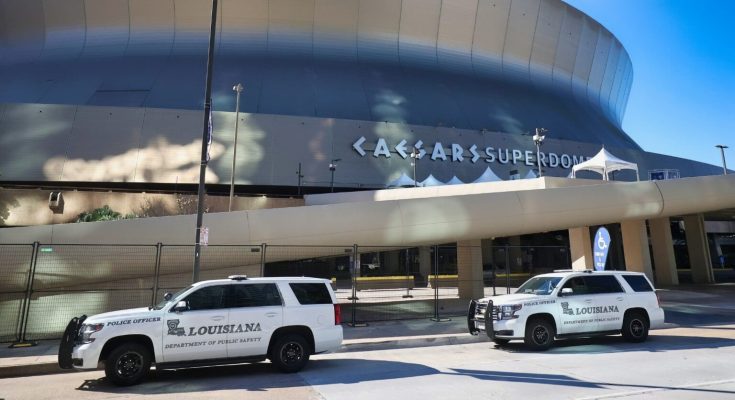The tragic New Year’s Day attack in New Orleans has left the city reeling and raised questions about its readiness to host Super Bowl LIX in February. A truck driver deliberately rammed into a crowd on Bourbon Street, killing 15 people and injuring at least 30 more. The attack, which authorities labeled as an act of terror, has forced a reassessment of security measures for upcoming events in the city, including the Sugar Bowl and the NFL’s biggest event of the year.
What Happened On New Year’s Day?
New Orleans witnessed chaos when a truck driver targeted revelers gathered for a New Year’s celebration on Bourbon Street. The deliberate attack caused widespread devastation, claiming 15 lives and injuring 30 others. Authorities swiftly labeled the incident as a terrorist act, intensifying concerns over public safety in a city preparing to host major sporting events.
The Sugar Bowl, originally scheduled for New Year’s Day, was postponed by 24 hours due to security concerns. The game, featuring No. 2 Georgia and No. 5 Notre Dame, will now take place on Thursday, January 2, as officials work to ensure a secure environment for attendees.
NFL’s Stance On Super Bowl Relocation
Despite heightened fears, the NFL has confirmed that Super Bowl LIX will proceed as planned at Caesars Superdome on February 9. The iconic venue will host its eighth Super Bowl, while New Orleans will host its eleventh.
Addressing concerns, the NFL stated, “The NFL and the local host committee have been working collaboratively with local, state, and federal agencies the past two years and have developed comprehensive security plans. These planning sessions will continue, and we are confident attendees will have a safe and enjoyable Super Bowl experience.”
Authorities and event organizers remain focused on the immediate challenge of hosting the Sugar Bowl safely. ESPN reporter Laura Rutledge highlighted this priority, stating, “At this point, the focus is on the Sugar Bowl. They’ll turn their attention to the Super Bowl as they carry on. With so many people on the ground, I imagine New Orleans will do everything possible to ensure the Super Bowl is in good condition going forward.”
Enhanced Security Measures
In response to the attack, New Orleans has seen an influx of law enforcement and federal agents, including the FBI, to bolster security. Officials have been meeting with representatives from the college football playoff and Sugar Bowl committees to ensure a secure environment for the rescheduled game. Significant efforts include revising existing security barriers installed in 2017 to prevent similar attacks on Bourbon Street.
Rutledge also noted New Orleans’ experience in hosting major events, emphasizing the city’s preparedness despite recent challenges. “New Orleans has hosted many big events and is well-prepared for that. With the FBI and additional law enforcement on the ground, they’re doing everything possible to ensure safety for everyone,” she said.
What’s Next For New Orleans?
As the Sugar Bowl unfolds on January 2, it will serve as a critical test of the city’s updated security protocols. The success of this event could shape public perception and confidence in New Orleans’ ability to safely host Super Bowl LIX just weeks later.
Authorities, meanwhile, continue to work closely with the NFL to address all potential threats and mitigate risks. While the tragic New Year’s Day attack has cast a shadow over the city, officials are determined to ensure the Super Bowl proceeds without incident. New Orleans’ resilience and experience with large-scale events remain key factors in its favor.
The 2025 Super Bowl remains scheduled for February 9 at Caesars Superdome in New Orleans. While the New Year’s Day attack has heightened concerns, the city’s extensive preparations and collaboration with federal agencies underscore its commitment to hosting a safe and successful event. For now, all eyes are on the Sugar Bowl as New Orleans takes the first step in proving its readiness under extraordinary circumstances.



